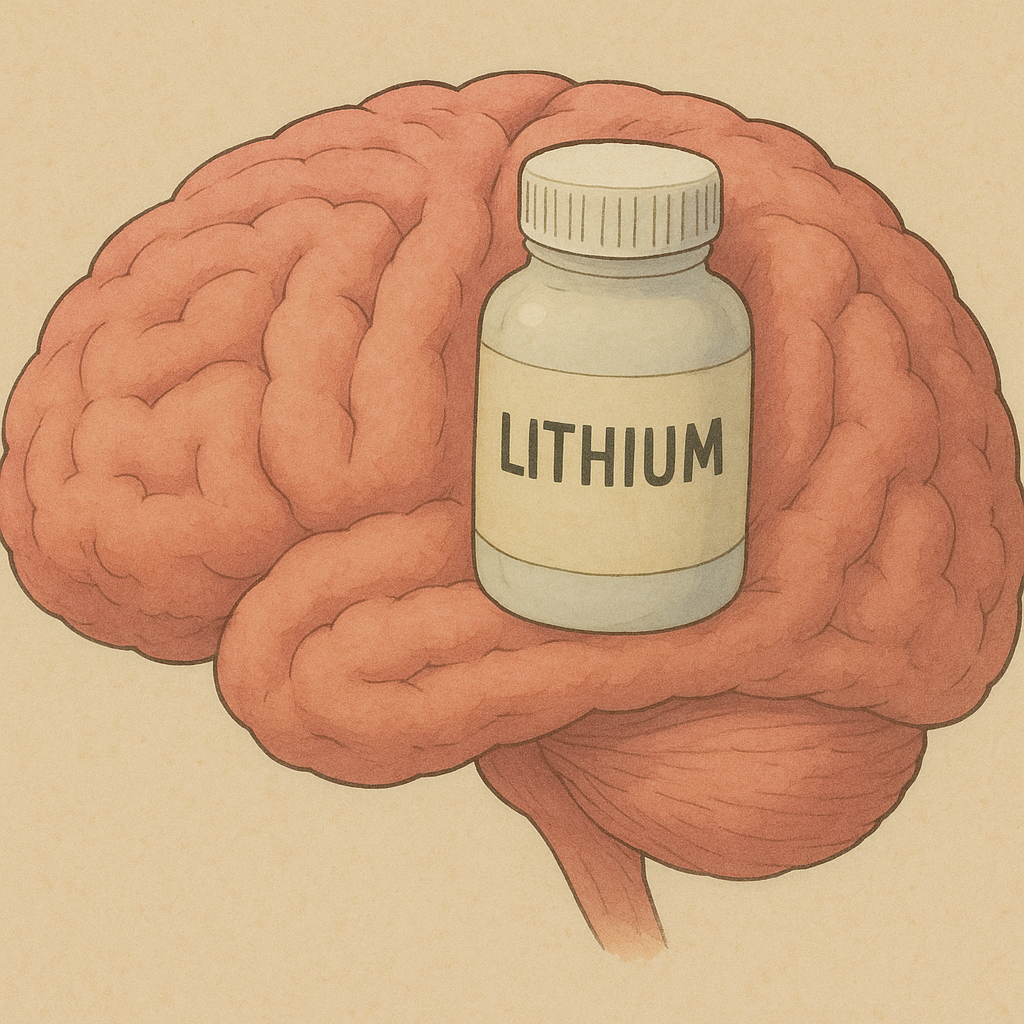Most people know lithium as a drug used to treat various psychiatric disorders, such as bipolar disease. What most people don’t know is that lithium is present in all human brains. In fact, a recent study from Harvard Medical School showed that reduced levels of naturally occurring lithium can lead to Alzheimer’s disease (AD).
The brains of patients with AD fill up with amyloid plaques. An amyloid plaque is a clump of proteins called beta amyloid. They are produced in non-AD brains as the precursor protein is cleaved (cut) into smaller pieces that are easily cleared by the body. In AD, the fragments clump and once clumped, the body cannot clear them from the brain. As these plaques accumulate between nerve cells in the brain (neurons), they interrupt the neurons ability to communicate. The end result is inflammation in the brain tissue that surrounds the plaques and, ultimately, damage in the brain. Recent promising advances in targeting the progression of AD is new medications that attach to the beta-amyloid and help remove the plaques from the brain.
These researchers found that lithium is depleted in AD brains because they bind to the amyloid plagues and that disease progression is linked to the decline in natural brain lithium. The found that in mice models low lithium levels were associated with an increased number of plaques, cognitive impairment, and memory loss. Further, they demonstrated that restoring lithium in mice is not only protective against developing the memory loss that is the hallmark of AD, but it can actually reverse the damage done and restore at least some of the brain’s function that had been lost.
This discovery is not only interesting, but by uncovering a potential factor for developing and have progression of AD, it gives new hope for a novel therapeutic intervention. The next step is to try to replicate these findings in humans: the link between lower brain lithium and the clinical signs of AD, the presence of lithium linked to amyloid plaques and the improvement in human brain health by administering lithium. One hurdle that needs to be overcome is that the administration of the formulations of lithium currently used to treat psychiatric conditions (lithium carbonate and lithium citrate) is toxic in high doses and can have long-term effects on the body, such as kidney damage and thyroid dysfunction. To address the tolerability of lithium for the purposes of combatting AD, efforts are underway already to develop different formulations of lithium with better efficacy and tolerability.
BeCare Neuro can help to track your cognitive health, and, if you are diagnosed with AD, to help you monitor your progression or your improvement with therapies given to you. With the available new anti-amyloid drugs on the market, you need to be your own advocate to get the best treatment to protect your brain and your future. Become empowered; be a driver of your own brain health journey.
